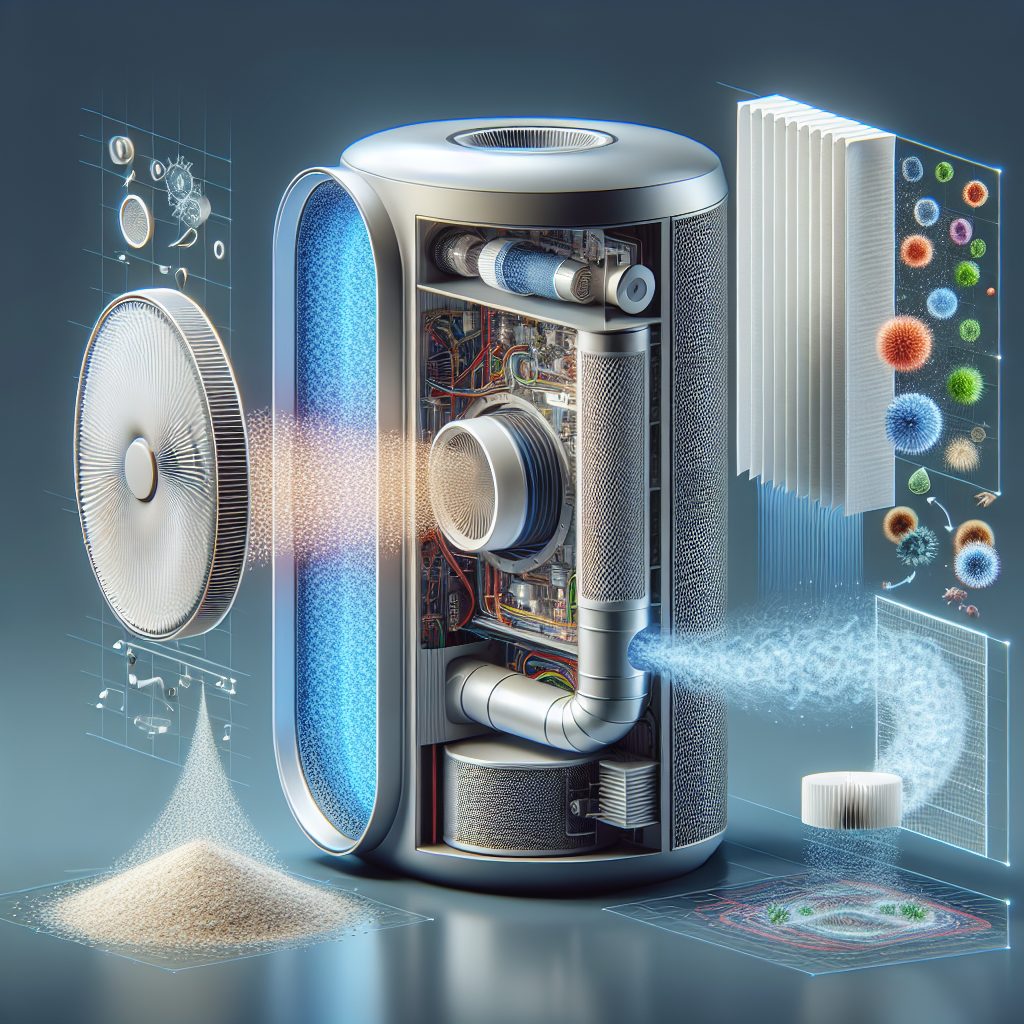
Air purifiers have become an essential item in today’s homes. They are especially important for those with allergies or other medical conditions that make it difficult to breathe. Air purifiers help capture and remove airborne allergens, such as animal dander, dust, smoke, pollen, and mold spores from the air, eliminating many of the potential triggers for allergy and asthma symptoms. By helping to keep air free from these airborne allergens, air purifiers can help people with allergies or asthma breathe easier.
Today, there are a variety of air purifiers designed to tackle different problems for allergies. Heavier particulate-removing purifiers can be used to keep the air clear of pet dander, while other models are specifically designed to tackle dust mites and other kinds of mold or fungus in the air. Some air purifiers even come with ultraviolet germicidal lighting or special charcoal filters for extra air cleaning power. In this article, we will explore the different types of air purifiers and the key features to look for when choosing one, so that you can find a purifier that fits your particular needs and the environment in which it will be used.
Key Takeaways
1. Air purifiers can significantly reduce the number of airborne allergens and pollutants.
2. Portable air purifiers can help clean the air in a single room without impacting air quality elsewhere in the house.
3. Filters in air purifiers should be replaced regularly in order to ensure the greatest possible benefits.
4. Air purifier technology has come a long way and is more efficient and affordable than ever.
5. Different filters can be used to target specific allergens and help individuals suffering from allergies.
What Purifiers are Best for Allergens?
When it comes to eradicating allergens from indoor air, air purifiers are among the most popular and effective solutions. In order to maximize the air quality for those with allergies, it is important to prioritize the right technology and features.
HEPA Level Filtration
The most effective air purifiers for allergens will have a HEPA filter, which stands for high-efficiency particulate air. This is made up of an intricate web of fibers that can capture even the smallest particles like pollen, dust, and pet dander. To be labeled “true HEPA”, the filter must meet standards set by the International Association of Air Cleaners and be able to trap at least 99.97% of particles that are .3 microns or larger.
Activated Carbon Filters
An activated carbon air filter can eliminate odors and gaseous pollutants by adsorbing them onto its surface. This is especially useful for people with allergies caused by smoke, emissions, and other airborne odors. Carbon filters also improve the overall cleanliness of the air by trapping very small particles between their fibers.
UV Light Sterilization
Ultraviolet light sterilization (UV-C) can effectively kill airborne bacteria and other microorganisms like mold spores and viruses. This can help people with allergies enjoy the freshest air possible, and it is also useful for keeping air purifiers free from germs and microbes.
Additional Features to Look For
There are a number of other features to consider when selecting an air purifier for allergies. These include the ability to filter a larger space, an air exchange rate of at least 4 times per hour, and effective fan speeds for faster filtration. It is also important to find a unit that is quiet enough for everyday use.
Tips for Reducing Allergy Symptoms with an Air Purifier
Air purifiers are great for fighting allergens, but there are a few additional things you can do to reduce symptoms even further. To get the most out of your air purifier:
- Use a HEPA filter with a MERV rating of at least 13.
- Replace the filter at least every 3-6 months.
- Vacuum carpets, furniture, and curtains frequently.
- Keep windows closed to keep allergens from entering.
- Regularly dust surfaces with a damp cloth.
What are air purifiers?
Air purifiers are devices designed to trap and remove contaminants from the air in the home or workplace. They use filters to capture allergens, dust, smoke, mould, bacteria and other airborne pollutants. Portable air purifiers are designed to purify the air in small areas, while whole-home air purifiers are designed to filter air throughout the entire home.
How do air purifiers help with allergies?
Air purifiers can reduce the levels of allergens such as dust, pollen, and pet dander in the air which helps alleviate allergy symptoms. Since these pollutants are so tiny, they can be difficult for the human body to filter out. An air purifier can trap particles that are in the air and remove them, making the air cleaner and easier to breathe.
What is the best air purifier for allergies?
The best air purifiers for allergies vary based on factors such as size of the room and type of pollutant. HEPA air purifiers are the most effective at capturing allergens, while ionic purifiers are better at filtering out pollutants. Consult with an air quality specialist to determine the best air purifier for your needs.
Are air purifiers noisy?
No, most air purifiers are designed with quiet operation in mind. Many models come with a built-in noise reduction feature that makes them almost silent when operating. Some air purifiers even come with a sleep mode that reduces noise even further for more peaceful operation.
Do air purifiers require maintenance?
Yes, air purifiers need to be regularly checked and maintained in order to stay in the best working condition. It is important to check the filter on a regular basis and replace it when needed. Additionally, the air purifier should be wiped down, cleaned, and vacuumed to ensure that it is always working at its best.
Are air purifiers expensive?
Air purifiers come in a variety of sizes and prices depending on the features they offer. Some air purifiers are affordable and some are more expensive. It is important to compare prices to find the best deal for your needs.
Are air purifiers energy efficient?
Yes, air purifiers are designed to be energy efficient. Most models are Energy Star certified, which means they use less energy than standard models. Additionally, many models come with built-in sensors that turn the purifier off when it is not in use, which helps save energy.
Do air purifiers produce ozone?
Some air purifiers use technology that can produce ozone, a naturally occurring gas that can be toxic in higher concentrations. It is important to look for air purifiers that use confirmed ozone-free technology when shopping.
Do air purifiers filter out smoke?
Yes, air purifiers can help filter out smoke. Many models come with special filters designed to trap smoke particles. Additionally, some purifiers come with activated carbon filters that help absorb odors from smoke.
Do air purifiers really work?
Yes, air purifiers are effective at removing pollutants and allergens from the air. There have been many studies conducted on the effectiveness of air purifiers and the results show that in most cases, they do reduce the levels of air pollution.
Final Thought
Air purifiers can be a great way to reduce allergens and other pollutants in the home. Investing in a quality air purifier can be a great way to improve air quality and reduce allergy symptoms. With so many different models and features available, it is important to do your research and find the best air purifier for your needs. Ultimately, air purifiers are an effective way to purify the air in your home and improve your health.



